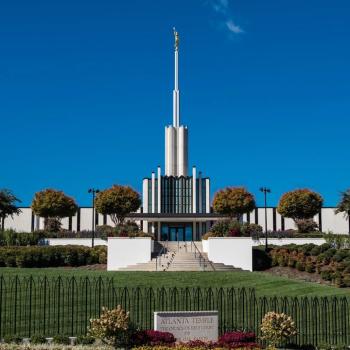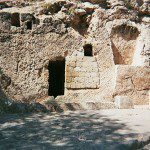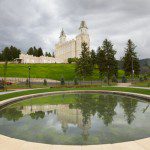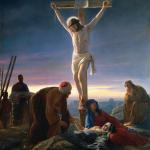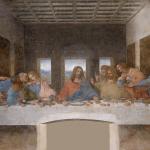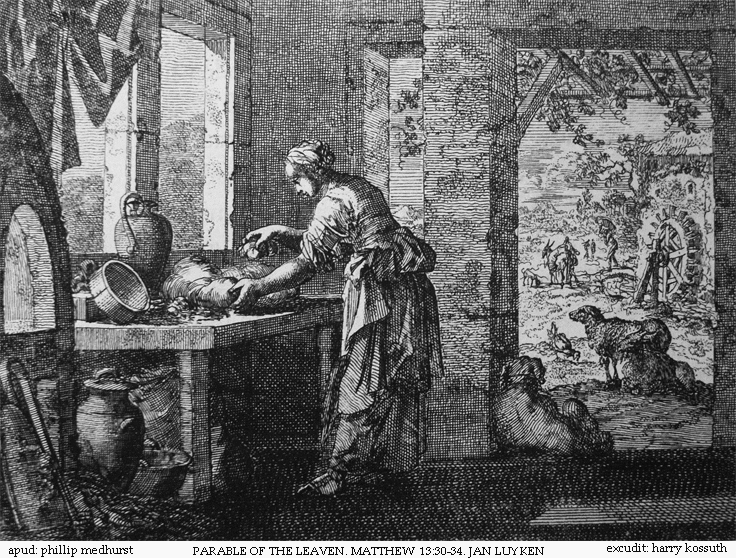
(Wikimedia Commons public domain image)
I would think that these verses might be just a little bit jarring to the kind of Protestant who thinks that everything he or she needs to know about God and divine things is laid out plainly in the Bible.
There’s a clear reference to secrecy in these verses, and, if there’s a reference to revealing secrets (which there is), it’s also pointed out that such revelation occurs symbolically, after a long wait, and that the plain truth is taught only to an inner circle of disciples.
A modern Christian could be pardoned for wondering whether, just maybe, he or she might have missed something.

In these verses, we get a sample of the kind of thing that Jesus said to his disciples but wouldn’t say openly to the multitude.
The relevant technical term here is disciplina arcani.
I love Matthew 13:43:
τότε οἱ δίκαιοι ἐκλάμψουσιν ὡς ὁ ἥλιος ἐν τῇ βασιλείᾳ τοῦ Πατρὸς αὐτῶν. ὁ ἔχων ὦτα ἀκουέτω.
“Then the righteous will shine like the sun in the kingdom of their Father. He who has ears, let him hear.”
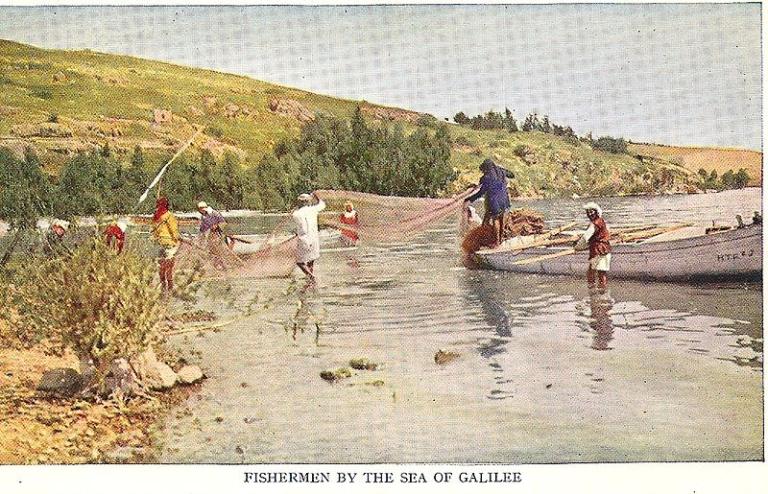
The brief parables of the hidden treasure and the pearl suggest the unparalleled worth of the Gospel, which is news so good that no other news can compare, a possession so valuable that no other comes even close. (I’m reminded — though he wouldn’t have appreciated this reapplication of his statement, of Ezra Pound’s declaration, in his 1934 essay on The ABC of Reading, that “Literature is news that stays news.”)
The parable of the net, by contrast, points out that the Kingdom will acquire all kinds of citizens, some of them rather shabby.
In this context, I recall a strikingly odd sermon given by President Brigham Young on 9 November 1856. I wasn’t actually in the audience, but he was addressing these passages:
Suppose there are wicked men here, I say the kingdom of heaven is like unto a net that gathers fish both good and bad, and I say this because it is true.
We have in our community the worst creatures that the world can produce; the Gospel net must gather them of necessity, or the saying of Jesus, and what he knew of the kingdom in the last day would not come to pass. There are as bad men and women within the pales of this Church as there are upon this earth, and the Gospel being preached to them prepares them to become devils. As you have frequently been told, that is the only way men can become devils; they must have the knowledge to sin against the Holy Ghost, or yet the day of redemption awaits them, one or the other.
Suppose I was preaching in the world, and they should allege that some of the people in Utah swore, stole, and were wicked in many ways, I would acknowledge it to be the case. They might then inquire, “Why do you say that you have got the Gospel of salvation? And why do you come to us to preach, seeing that your own people do wickedly?” I would reply that the kingdom of heaven is like unto a net that gathers fish of all kinds, therefore we must have the good and the bad in Utah, or else it cannot be the kingdom of heaven.
We have some of the bad, and those who pass through our settlements, or sojourn in our midst for a brief period, become familiar with those who are wicked, but do not become acquainted with the righteous. The great majority of this people are righteous, but the worldlings seek out and mingle with the few wicked here, because both those classes love the spirit of the world.
As to the great argument against the kingdom of God, because there are some evildoers in the Church, I will take the principles and doctrines taught by Jesus and his Apostles, and show that these go to prove and substantiate the fact that this is the kingdom of God. Why? Because we can produce the meanest curses there are on the earth, those who take all the revelations given by the Almighty, and every influence and revelation they can get from the devil, and make use of them to add sin to sin. This fact is also another proof that all hell is against this people, for there is not a person in the world, that gives way to wickedness, but what has antipathy against this people.
Now hearken, O ye Texans; do you say there are people here who are wicked? So we say. Could I wish things to be otherwise? No, I would not have them different if I could. We can produce the best men and the worst, the best women and the worst, and thus prove, according to the sayings of Jesus Christ and his Apostles, that this is the kingdom of God, or at least answers to the Savior’s description of that kingdom.
Were I in Texas I would say, let me tell you that I have not embraced any man on this earth, in my faith, but I have embraced the doctrine of salvation, and it is no matter what the people do in Utah. Here is the doctrine of salvation, talk against that, prove that to be false, or find a flaw in it, if you can. As for the people, they cannot save you. Never embrace a man in your faith, for that is sectarianism.
There are many of the men and women now before me who have looked for a pure people, and have supposed that that was a proof of the truth of our doctrines, but they will never find such a people until Satan is bound, and Jesus comes to reign with his Saints. The doctrine we preach is the doctrine of salvation, and it is that which the Elders of this Church take to the world, and not the people of Utah.
Finally, the parable of the treasures new and old hints at the inexhaustible riches of the Gospel of Jesus Christ, which is, as the saying goes, both profoundly simple and simply profound.
In that spirit, here are the words of the great hymn writer Isaac Watts (d. 1748), which the Latter-day Saint John J. McClellan (d. 1925) set to memorable music:
-
1. Sweet is the work, my God, my King,To praise thy name, give thanks and sing,To show thy love by morning light,And talk of all thy truths at night.
-
2. Sweet is the day of sacred rest.No mortal care shall seize my breast.Oh, may my heart in tune be found,Like David’s harp of solemn sound!
-
3. My heart shall triumph in my LordAnd bless his works and bless his word.Thy works of grace, how bright they shine!How deep thy counsels, how divine!
-
4. But, oh, what triumph shall I raiseTo thy dear name through endless days,When in the realms of joy I seeThy face in full felicity!
-
5. Sin, my worst enemy before,Shall vex my eyes and ears no more.My inward foes shall all be slain,Nor Satan break my peace again.
-
6. Then shall I see and hear and knowAll I desired and wished below,And every pow’r find sweet employIn that eternal world of joy.



